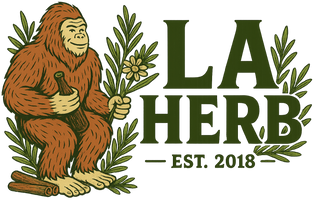1. Herbs for Qi (Energy) Regulation
- Ren Shen (Ginseng): Boosts energy, strengthens the immune system, and improves focus.
- Huang Qi (Astragalus Root): Enhances immune function, promotes energy, and supports the spleen.
- Dang Shen (Codonopsis Root): Replenishes Qi, supports digestion, and strengthens the lungs.
- Gan Cao (Licorice Root): Harmonizes formulas, soothes the throat, and reduces inflammation.
2. Herbs for Blood Nourishment
- Dang Gui (Angelica Sinensis): Regulates menstruation, nourishes the blood, and improves circulation.
- Shu Di Huang (Rehmannia Root): Tonifies blood, treats anemia, and supports the kidneys.
- Bai Shao (White Peony Root): Eases pain, nourishes blood, and calms the liver.
3. Herbs for Clearing Heat
- Huang Qin (Scutellaria Root): Clears heat, treats fever, and combats infections.
- Zhi Mu (Anemarrhena Rhizome): Reduces heat, quenches thirst, and supports the kidneys.
- Lian Qiao (Forsythia Fruit): Disperses heat, treats abscesses, and clears toxins.
- Jin Yin Hua (Honeysuckle Flower): Clears heat, treats sore throats, and detoxifies.
4. Herbs for Tonic Functions
- He Shou Wu (Fo-Ti): Supports liver and kidney function, promotes longevity, and darkens graying hair.
- Gou Qi Zi (Goji Berries): Nourishes the liver, improves vision, and supports overall vitality.
- Lu Rong (Deer Antler Velvet): Boosts yang energy, supports bones, and improves stamina.
5. Herbs for Dampness and Phlegm
- Fu Ling (Poria Mushroom): Drains dampness, strengthens the spleen, and calms the mind.
- Chen Pi (Aged Tangerine Peel): Reduces bloating, aids digestion, and clears phlegm.
- Ban Xia (Pinellia Rhizome): Resolves phlegm, harmonizes the stomach, and stops vomiting.
6. Herbs for Pain Relief
- Yan Hu Suo (Corydalis Root): Relieves pain, improves circulation, and treats menstrual cramps.
- Chuan Xiong (Ligusticum Root): Promotes circulation, alleviates headaches, and nourishes blood.
- Mu Xiang (Aucklandia Root): Relieves pain, regulates Qi, and supports digestion.
7. Herbs for Kidney and Yin Nourishment
- Nu Zhen Zi (Privet Fruit): Nourishes yin, improves vision, and combats dryness.
- Shan Zhu Yu (Cornus Fruit): Tonifies the kidneys, retains essence, and stabilizes menstruation.
- Bai He (Lily Bulb): Moistens lungs, calms the heart, and nourishes yin.
8. Herbs for Detoxification
- Bai Hua She She Cao (Oldenlandia): Treats cancer, clears heat, and detoxifies.
- Da Huang (Rhubarb Root): Strongly purges toxins, clears heat, and relieves constipation.
- Huang Lian (Coptis Root): Clears damp-heat, treats infections, and supports the stomach.
9. Herbs for Calming the Spirit
- Suan Zao Ren (Sour Jujube Seed): Nourishes the heart, calms the mind, and aids sleep.
- Long Gu (Fossilized Bone): Settles anxiety, calms the liver, and anchors the spirit.
- Bai Zi Ren (Biota Seed): Moistens intestines, nourishes the heart, and calms the spirit.
10. Herbs for Wind and Damp Disorders
- Du Huo (Angelica Root): Treats joint pain, relieves lower back pain, and expels wind-damp.
- Qiang Huo (Notopterygium Root): Relieves headaches, body aches, and wind-cold symptoms.
- Sang Ji Sheng (Mulberry Mistletoe): Strengthens bones, supports joints, and calms the fetus.
11. Herbs for Menstrual and Fertility Support
- Yi Mu Cao (Motherwort): Regulates menstruation, treats postpartum issues, and improves blood flow.
- Xiang Fu (Cyperus Rhizome): Eases menstrual pain, regulates Qi, and harmonizes the liver.
- Wu Wei Zi (Schisandra Berry): Tonifies kidney essence, calms the mind, and improves fertility.
12. Herbs for Lung Support
- Xing Ren (Apricot Seed): Relieves cough, stops wheezing, and moistens the intestines.
- Bai He Gu Jin Tang (Lily and Rehmannia Decoction): Treats chronic dry cough and nourishes yin.
- Jie Geng (Platycodon Root): Opens the lungs, expels phlegm, and soothes the throat.
Key Notes
TCM categorizes herbs by their nature (e.g., warm, cold), flavor (e.g., bitter, sweet), and meridian associations (e.g., liver, spleen). Each herb is used in specific combinations to maximize therapeutic effects and minimize side effects.
For an exhaustive list of TCM herbs and their uses, referencing classic texts like the Shen Nong Ben Cao Jing or consulting with a licensed TCM practitioner is recommended.
